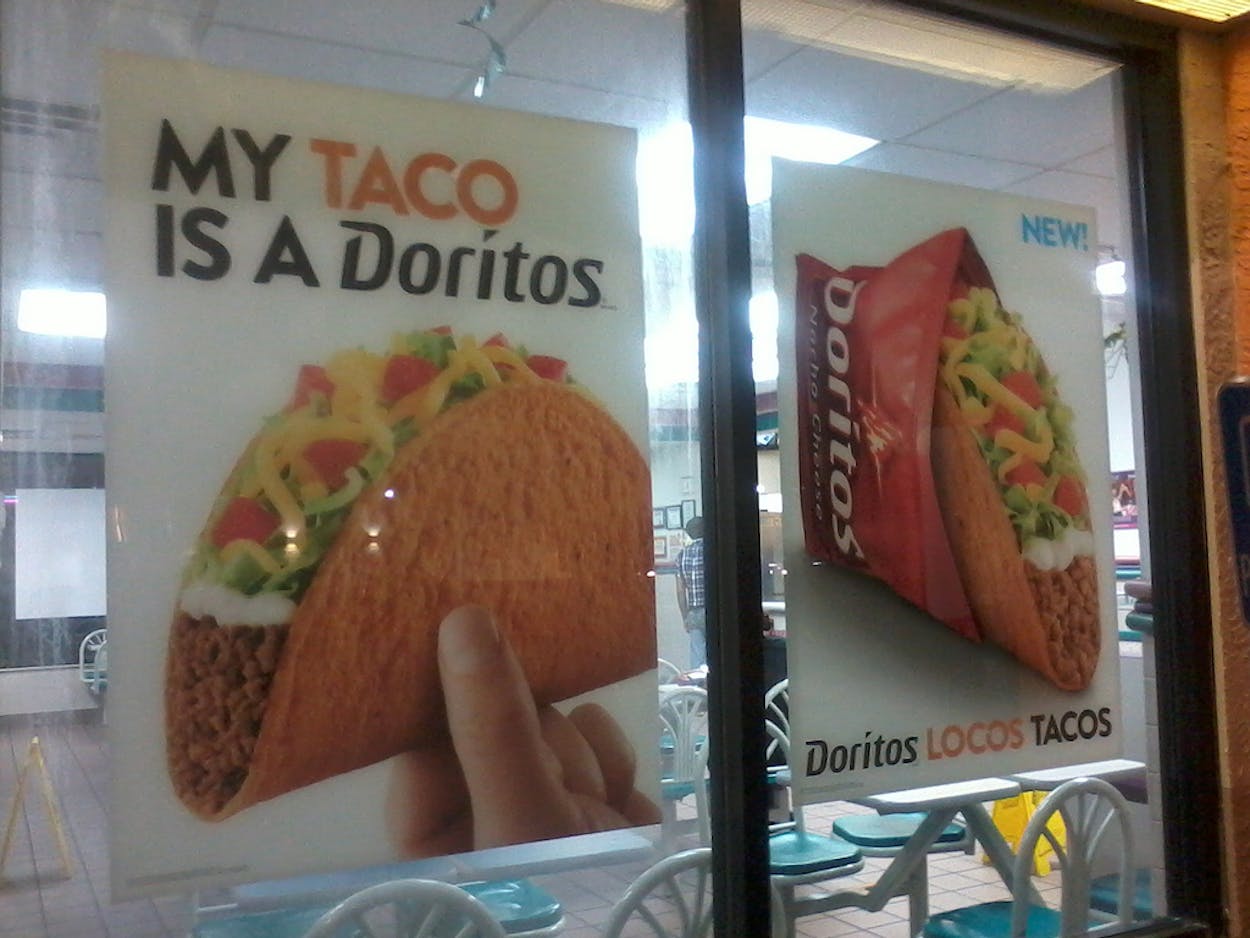Is Taco Bell’s 50th Anniversary a reason to celebrate? It is for OC Weekly editor Gustavo Arellano, who has written a post called “5 Ways the Bell Helped Mexican Food Become Better in the U.S.”
The author of the infamous ¡Ask a Mexican! column is not just being contrary or casting bait for clicks. In fact, it’s a subject that’s kind of near and dear to his heart. When Taco Bell founder Glen Bell Jr. (Really? Who knew?) died in 2010, Arellano wrote in the Los Angeles Times that Bell:
[D]eserves a spot in Mexican American lore, in the gallery honoring those brave pioneers who helped us join the melting pot — below Cesar Chavez but higher than George Lopez.
Arellano is interested in how Mexican food became popularized and Americanized, and his current post is part of a series based on his upcoming book, Taco USA: How Mexican Food Conquered America. (Earlier this month, Arellano named El Paso, Dallas and San Antonio as three of “The Five Most Influential Cities in the Development of Mexican Food in the United States.”)
So while he doesn’t care for the Mexican food chain’s food, his five points about Taco Bell are:
- Taco Bell Brought Mexican Restaurants to Places That Never Had One, Thereby Whetting Appetites for the Better Mexican to Come
- Taco Bell Convinced Non-Mexicans that They, Too, Could Get Rich off Mexican Food
- Taco Bell Helped to Popularize the Burrito
- Taco Bell Has Long Made Bilingualism Cool
- Taco Bell is Proof that Mexican Food Isn’t Static but Rather Evolutionary
It’s the last two arguments that are most interesting. As Arellano notes, Taco Bell’s current advertising slogan is “Live Más,” “complete with an accent on the a in “más” just like it’s supposed to.”
And to his final point, he argues that Taco Bell’s irreverent, mongrel Mexican food basically equals fusion, and therefore helped make possible more appealing (but no less blasphemous) inventions–not just the examples he mentions below, but also things we love in Texas like fried avocado tacos or smoked brisket tamales:
If it were up to the Rick Baylesses and Diana Kennedys of the world, Mexican food would still be the same dishes served to Nezahualcoyotl (which would’ve meant no beef, lamb, pork, rice, or tequila–but don’t tell that to them!). In fact, the ridiculous authenticity game largely arose as a counterpoint to Taco Bell’s increasingly wacky creations, wackiest of which is now their foray into taco shells made with Doritos flavors (of which I’ll have a review this week).I don’t like Taco Bell’s offerings–never have. But every chalupa, every enchirito, every Doritos Loco taco is a spit in the eye of atavistic pendejos. If we paid attention to what Bayless, et al. preach as gospel, we would’ve never had the Korean taco, the pastrami burrito, the Sonoran dog and all other sorts of meal mestizaje. Taco Bell has shown innovative restaurateurs that consumers are always looking for something new–and it’s that truism that has made Mexican food the juggernaut it is today.
- More About:
- Mexican Food







